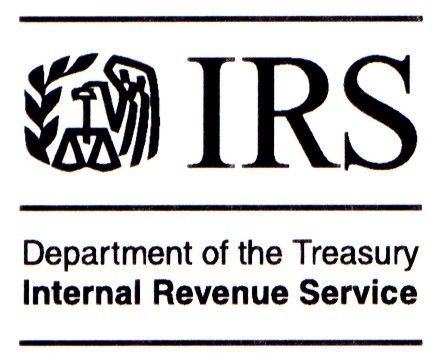UPDATE – $4 Billion in Tax Refunds Stolen
UPDATE April 11, 2014
Identity theft and fraudulent refunds are a nightmare for the IRS. According to a report from Yahoo News the government reported that nearly $4 billion was paid out in the last year. The money was paid to identity thieves. So far 880 people have been charged. Attorney General Eric Holder blames the theft on numerous players including dishonest tax preparers and identity brokers who sell personal information to criminals gangs and drug cartels.
Currently there are nearly 1,500 criminals investigations ongoing into identity theft. That number is up 66% over last year. Another 200 have been launched this tax season already. The source of the fraud is scattered all over the globe with payments going to places like Bulgaria, Lithuania and Ireland. More fraudulent payments went to Miami that any other U.S city. Last week in south Florida 25 people were charged with using stolen identities to steal more than $36 million in fraudulent tax refunds.
The problem is so great that even the U.S. Attorney General’s identity was stolen. Two men in Georgia pled guilty to attempting to get a tax refund using Eric Holder’s identity.
Attorney General Eric Holder said this week that the “scale, scope and execution of these fraud schemes” has grown substantially.
The IRS strongly urges citizens to guard their social security numbers and personal information zealously. Social security numbers are stolen using various methods. Some people are tricked into revealing their information, others have the information stolen outright from different sources. In one case a school food services worker allegedly stole information from an electronic database. In another case a prison guard is accused of stealing the identity of inmates and a postal worker stole information from mailboxes. A barber shop owner in Washington pled guilty to operating a $20 million scheme netting tax refunds for nursing home residents, prisoners and even dead people. There are even reports of people selling their information to criminals.
But the IRS is fighting back saying that the amount of fraudulent tax refunds is down compared to 2010. The IRS also said it has improved its computers to better identify suspicious refunds.
Breaking It Down
The problem of identity theft is simply out of control. Four billion dollars is a helluva lot of money and the instances cited in the Yahoo article are just speck on the horizon. Identity theft is becoming, if it isn’t already, a national security issue. The IRS says $4 billion but I am willing to guess that is a very conservative estimate at best. This problem, in my opinion, threatens the stability of the income tax system. Some may say that $4 billion is just a small percentage of the money the IRS receives annually and they would be right. But we have to look at the confidence of the American taxpayer in the IRS and the federal government. The IRS is not the most loved agency to begin with. And we all know how Americans feel about those politicians in Washington DC. The erosion of confidence in the tax system is a deadly issue that could ignite a tax rebellion. You might say that I’m reaching but I don’t think so. Americans feel they over taxed, that the the system favors the rich, that corporations are getting away without paying a dime though they rake in billions annually. Starting to see where this is going. Taxpayers/voters anger quickly and if this problem gets any bigger the tax system could receive the overhaul it desperately needs. Kinda like saying to someone; “I hope you feel better soon or else…”
April 3, 2014 UPDATE-Scam artists are stepping up their efforts to defraud people out of their money. According to the IRS this is the largest tax scam they have ever seen. In the latest reports the scam artists are combining threatening phone calls with emails claiming people owe the IRS back taxes. The amounts are between $4,000 and $6,000. In some of these calls the scammers may have information such as the victims last four numbers of their social security number. These callers have threatened to have people arrested, deported and in some instances even claim to be on their way to the victims homes. A recent news report highlights the tax scam and how it works
Any email you receive claiming to be from the IRS should be deleted. Do not surrender any information and do not click on any links in the email. Find more information about these tax scams at the IRS website.
The IRS does not contact taxpayers by phone or email. If you receive a call simply hang up the phone.
If you do get a call from someone claiming to be with the IRS asking for a payment, here’s what you do:
- If you owe or think you may owe taxes, contact the IRS directly at 1-800-829-1040.
- Make sure to call and report the incident to the Treasury inspector general of tax administration at 1-800-366-4484.
- File a complaint with the Federal Trade Commission at www.FTC.gov. Please add “IRS Telephone Scam” to the comments in your complaint.
ORIGINAL POST – IRS officials are warning taxpayers of a telephone tax scam that has so far netted the culprits over $1 million dollars. According to the IRS someone is calling victims claiming to be from the IRS and telling them they “…owe taxes and must pay using a pre-paid debit card or wire transfer,” said the IRS inspector general office. The criminals may threaten the victims with arrest, deportation or the loss of their driver’s license. The IRS has received over 20,000 complaints so far.
According to J. Russell George, the Treasury inspector general for tax administration, it is “the largest tax scam of its kind that we have ever seen.”
The Inspector General’s said that the IRS rarely calls taxpayers first. The first step is a letter in the mail and the IRS does not demand immediate payment with a credit card, debit card or wire transfer. If you receiver such a call notify the IRS immediately.
See Also : Tax Season is Scam Season
Breaking It Down:
Any scam, no matter what it, is is based on a simple fundamental strategy; find the sucker! I feel sorry for people who fall for these scams because these criminals are professionals and they know what button to push to squeeze their victims. But anybody that gives up a dime without a fight, even to the IRS, is playing the sucker role.
When it come to tax scams these criminals play upon ignorance and fear. If you don’t know how the IRS works then you may be a victim waiting to be found. Anyone who calls you on the phone claiming that you owe them money is suspect. Especially if you don’t know who they are or what they are talking about. Defend yourself by telling them you will call them back. Don’t ask for a phone number and don’t give up any information. Don’t even confirm your phone number!
Here is a tidbit of information; many of these tax scam calls come from overseas. The numbers are dialed by a computer and when you answer you are connected to a human who probably does not know the number dialed. If they ask you to confirm your number say NO! Confirming your phone number allows them to record the number as a hit and they will call back, sometimes incessantly. Don’t give them an alternate phone number or work number. You are asking for trouble if you do that. A work number means they can call your job and harass your employer. DON’T DO IT! The real IRS knows where you work!
Bottom line, educate yourself. The best defense against a scam is being alert and knowledgeable. Study the IRS tax payer rights and understand how they work. And if you do have legitimate tax issues ask for an advocate.







